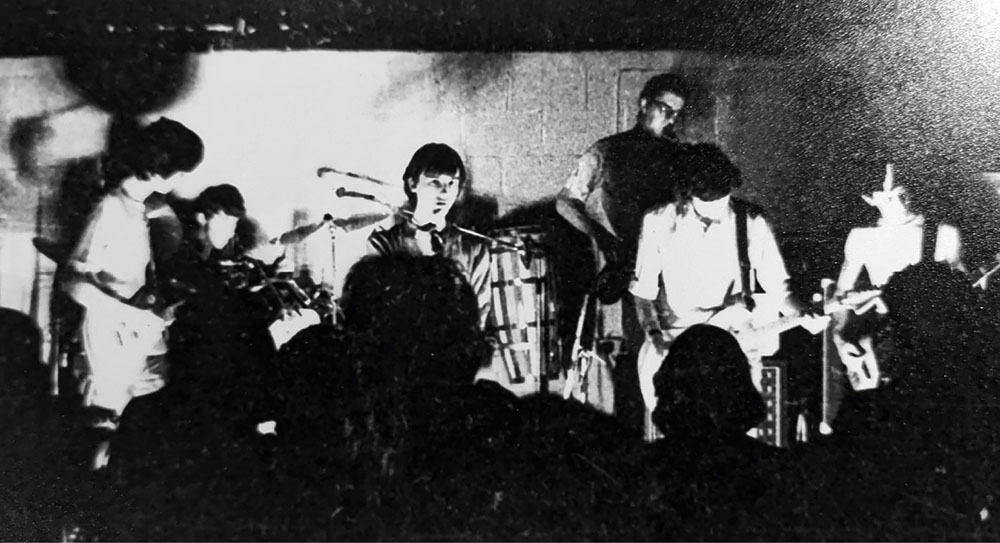HARDWARE – UNTITLED LP, 1979
Limited edition vinyl release 14 March 2025 on Dirty Knobby Records
US preorder at Big Cartel and Midheaven
UK preorder at Juno
Digital at Bandcamp
HARDWARE — UNTITLED LP, 1979
Side 1
1. WALKING
2. FIRE
3. SPEED UNIT
4. WALL TO WALL
Side 2
1. FACE THE FLAG
2. RUBBERFACE
3. THE SEVEN MINUTES
4. RAINY TAXI
5. FRENCH BOYS IN INDIA
JOHN DANYLYSZYN: Vocals
MIKE CHANDLER: Guitar
JAMES JOHNSTONE: Guitar
ANDREW CARPENTER: Drums
ROGER DOUGHTY: Saxophone/Wasp
With
PAUL SCOTT: Bass (Side 1)
MARK J. SMITH: Bass (Side 2, tracks 1/2/3)
JOHN BENNETT: Bass (Side 2, tracks 4/5)
EDWARD COLLIER: Piano (Side 2, tracks 2/3)
Written and produced by HARDWARE
Recorded by MICK DOLAN at Millstream Studio, Cheltenham, 1979
Side 1 mixed by MICK DOLAN at Millstream Studio, Cheltenham
Side 2 (1/2/3) mixed by JAMES JOHNSTONE at Watermint Studio, London
Side 2 (4/5) mixed by GARETH WILLIAMS at Yellow Shark Studio, Cheltenham
Mastered by: ADAM GONSALVES at Telegraph Mastering, Portland, OR
Design by JAMES JOHNSTONE
Front cover photograph by PHIL JOHNSON
Special thanks to ROGER DOUGHTY (N·A·R·C) & TOM OJENDYK (dirty knobby)
Side 1: Original release HARDWARE EP – N·A·R·C 001, 1979
Side 2: Tracks 1/2/3 Original release RUBBERFACE EP – N·A·R·C 002, 1979
Side 2: Tracks 4/5 Previously unreleased
℗ & © 1979-2024 Hardware. All rights reserved.
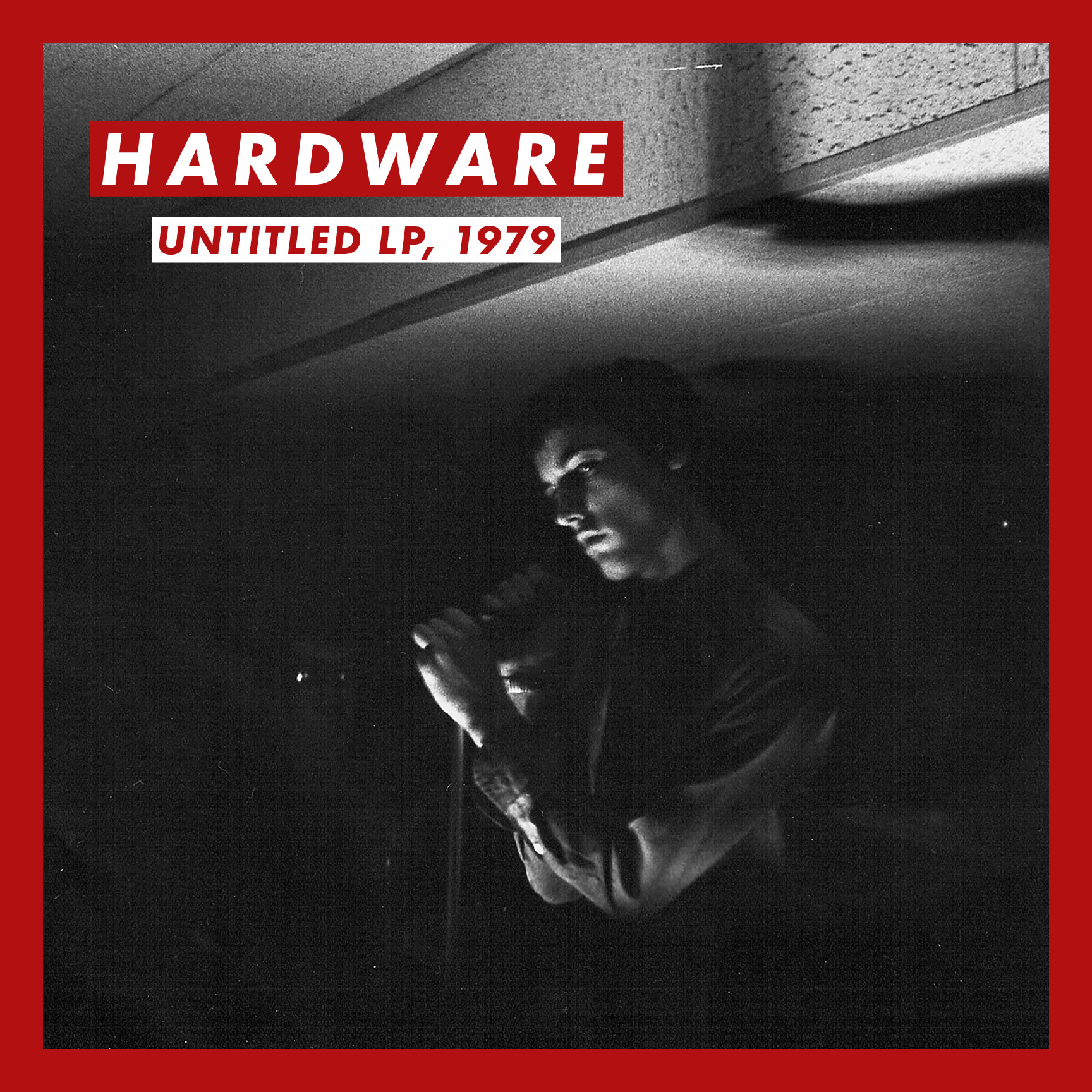
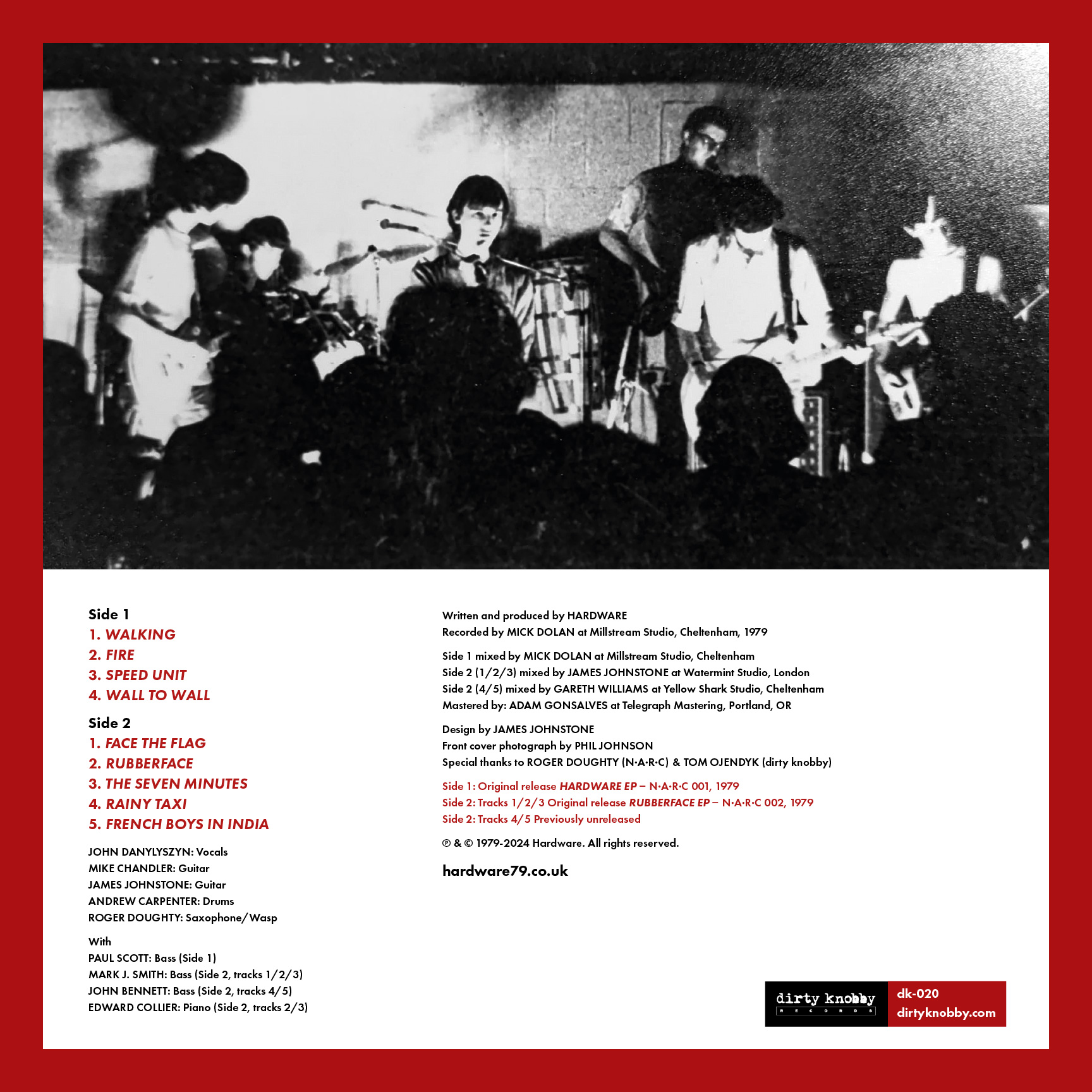
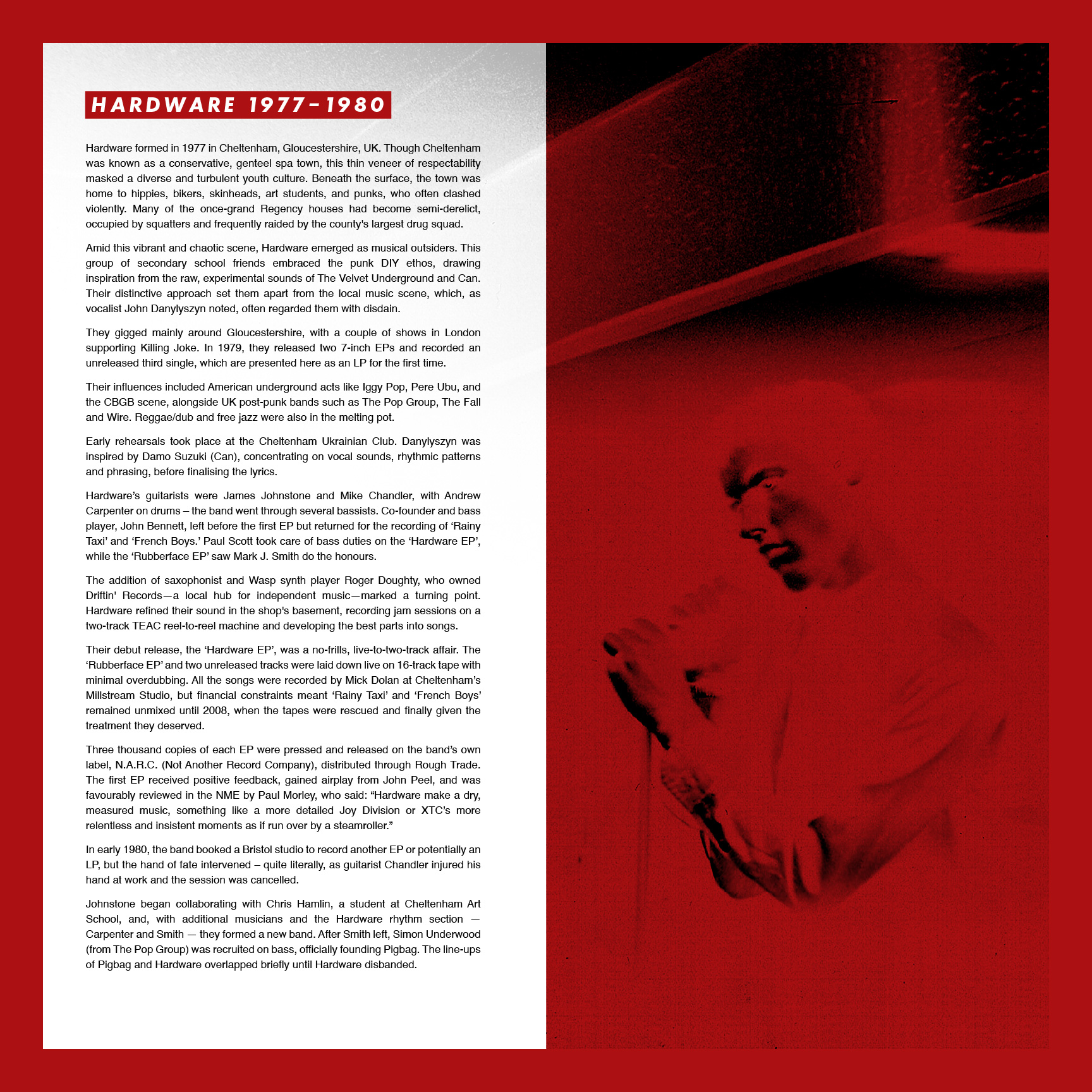
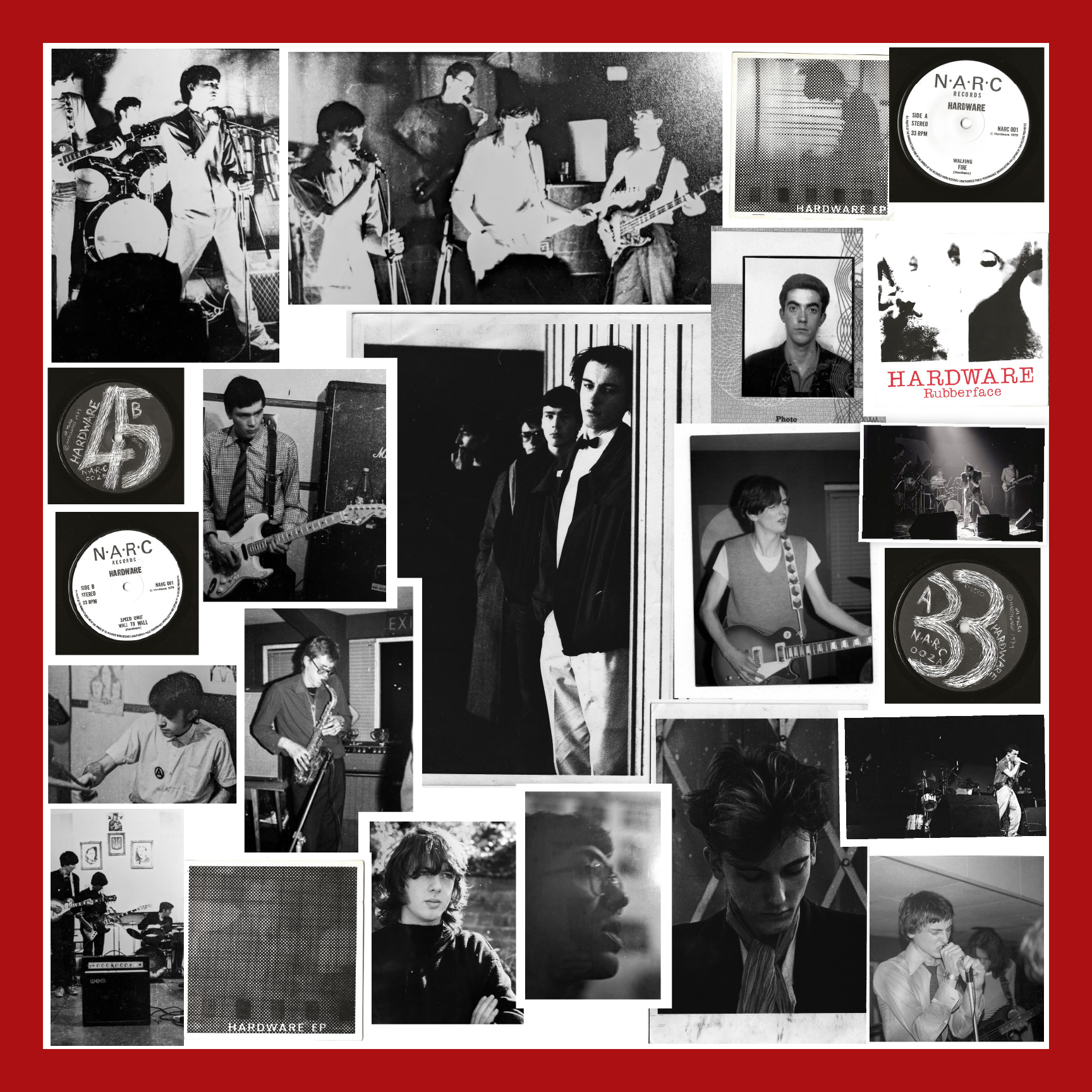
HARDWARE 1977-1980
Hardware formed in 1977 in Cheltenham, Gloucestershire, UK. Though Cheltenham was known as a conservative, genteel spa town, this thin veneer of respectability masked a diverse and turbulent youth culture. Beneath the surface, the town was home to hippies, bikers, skinheads, art students, and punks, who often clashed violently. Many of the once-grand Regency houses had become semi-derelict, occupied by squatters and frequently raided by the county's largest drug squad.
Amid this vibrant and chaotic scene, Hardware emerged as musical outsiders. This group of secondary school friends embraced the punk DIY ethos, drawing inspiration from the raw, experimental sounds of The Velvet Underground and Can. Their distinctive approach set them apart from the local music scene, which, as vocalist John Danylyszyn noted, often regarded them with disdain.
They gigged mainly around Gloucestershire, with a couple of shows in London supporting Killing Joke. In 1979, they released two 7-inch EPs and recorded an unreleased third single, which are presented here as an LP for the first time.
Their influences included American underground acts like Iggy Pop, Pere Ubu, and the CBGB scene, alongside UK post-punk bands such as The Pop Group, The Fall and Wire. Reggae/dub and free jazz were also in the melting pot.
Early rehearsals took place at the Cheltenham Ukrainian Club. Danylyszyn was inspired by Damo Suzuki (Can), concentrating on vocal sounds, rhythmic patterns and phrasing, before finalising the lyrics.
Hardware’s guitarists were James Johnstone and Mike Chandler, with Andrew Carpenter on drums – the band went through multiple bassists. Co-founder and bass player, John Bennett, left before the first EP but returned for the recording of ‘Rainy Taxi’ and ‘French Boys’. Paul Scott took care of bass duties on the ‘Hardware EP’, while the ‘Rubberface EP’ saw Mark J. Smith do the honours. Krispi Collier also filled in for some live shows.
The addition of saxophonist and Wasp synth player Roger Doughty, who owned Driftin' Records — a local hub for independent music — marked a turning point. Hardware refined their sound in the shop's basement, recording jam sessions on a two-track TEAC reel-to-reel machine and developing the best parts into songs.
Their debut release, ‘Hardware EP’, was a no-frills, live-to-two-track affair. ‘Rubberface EP’ and two unreleased tracks were laid down live on 16-track tape with minimal overdubbing. All the songs were recorded by Mick Dolan at Cheltenham’s Millstream Studio, but financial constraints meant ‘Rainy Taxi’ and ‘French Boys’ remained unmixed until 2008, when the tapes were rescued and finally given the treatment they deserved.
Three thousand copies of each EP were pressed and released on the band’s own label, N.A.R.C. (Not Another Record Company), distributed through Rough Trade. The first EP received positive feedback, gained airplay from John Peel, and was favourably reviewed in the NME by Paul Morley, who said: “Hardware make a dry, measured music, something like a more detailed Joy Division or XTC’s more relentless and insistent moments as if run over by a steamroller.”
In early 1980, the band booked a Bristol studio to record another EP or potentially an LP, but the hand of fate intervened – quite literally, as guitarist Chandler injured his hand at work and the session was cancelled.
Johnstone began collaborating with Chris Hamlin, a student at Cheltenham Art School, and, with additional musicians and the Hardware rhythm section — Carpenter and Smith — they formed a new band. After Smith left, Simon Underwood (from The Pop Group) was recruited on bass, officially founding Pigbag. The line-ups of Pigbag and Hardware overlapped briefly until Hardware disbanded.
HARDWARE – UNTITLED LP,1979
Buy:
Listen:
Contact:
